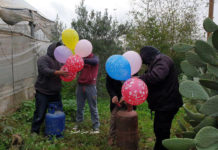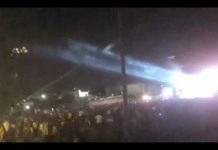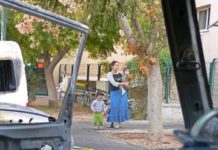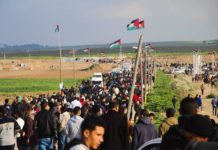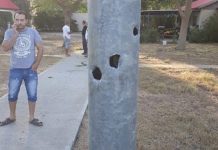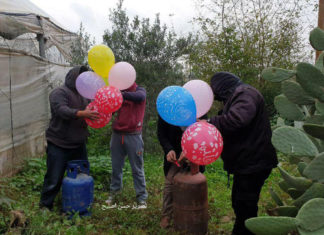http://www.algemeiner.com/2013/08/09/rockets-from-gaza-shatter-calm-in-eshkol/
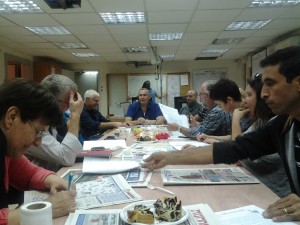
According to Ronit Minkaer, the spokeswoman for the Eshkol Regional Council, the western Negev region has been averaging three rocket attacks a weeks. “There have also been weeks where more and sometimes less than three rockets and mortars have been fired towards our region,” Minaker told Tazpit News Agency.
“We are seeing more sporadic rocket fire lately because of discussions surrounding the peace talks,” she added. ”As residents, we see an increase in rocket attacks every time there is an opportunity for peace talks.”
Another rocket was fired last week, on Tuesday July 30, as peace talks were initiated between Israel and the Palestinian Authority in Washington.
The Eshkol Regional Council, located in the northwestern Negev, shares a 40 kilometer border boundary with the Gaza Strip. There are 12,500 people living in 31 communities, which include 15 moshavim and 14 kibbutzim as well as two residential communities. Most of the region’s communities and schools are sheltered, with summer camps and activities taking place in sheltered areas.
Minaker described the months following Operation Pillar of Defense carried out in November 2012 as relatively calm. “Residents were able to get back on their feet and return to normal routines for the first time in a very long time,” she said.
But the summer has seen a steady stream of rocket attacks. “Each rocket is terrible,” says Minaker. “They may seem nothing to outsiders, as news flashes frequently report no injuries or damages but these rockets shatter routines.”
Often times the Gaza rockets are fired at nights, waking Eshkol residents.
“You start your day in a different state of mind; more worried and anxious” explains Minaker. “Discussions around the breakfast table will center on the rocket that fell the night before. You see that it affects your entire day.”
Since January 2013, there have been 25 rocket hits identified in Israeli territory according to Israel’s Intelligence and Terrorism Information Center, which didn’t include mortar fire in its recent rocket fire summary. The summer disquiet began on June 23, when a barrage of rockets were fired at southern Israel by Islamic Jihad. This ended a period that was described by Haaretz’s military correspondent, Amos Harel, as one of the quietest times on the Gaza border during the past 13 years.
But last night’s rocket attacks and other incidents raise questions, according to Minaker.
“The state of Israel cannot accept rockets as a way of life for its civilian residents – why should we be conditioned to live this way?” she asks.
“The residents of Eshkol will be the first to bless and welcome a peace agreement that leads to permanent quiet,” Minaker concluded.



